DNA Today: A Genetics Podcast
Discover New Advances in the world of genetics, from technology like CRISPR to rare diseases to new research. For over a decade, multi-award winning podcast ”DNA Today” has brought you the voices of leaders in genetics. Host Kira Dineen brings her genetics expertise to interview geneticists, genetic counselors, patient advocates, biotech leaders, researchers, and more.
***Best 2020, 2021, and 2022 Science and Medicine Podcast Award Winner***
Learn more (and stream all 380+ episodes) at DNAtoday.com. You can contact the show at info@DNAtoday.com.
This show is part of "Gene Pool Media: The Science Podcast Network" head to GenePoolMedia.com to explore all our science themed shows.
Episodes
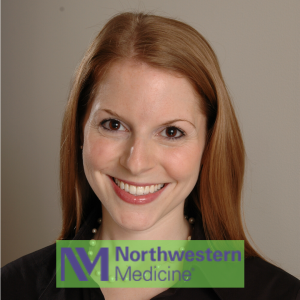
Friday Jun 05, 2020
Friday Jun 05, 2020
DNA Today stands in solidarity with BLM and in doing so we wanted to share a few resources with you listeners where you can educate yourself by listening to Black voices in our genetics community. You can support BLM through donations to ActBlue here.Dr. Janina Jeff was a guest back on episode 117 where she shared her new podcast, “In Those Genes”, that uses genetics to uncover the lost identities of african descended americans through the lens of black culture. Please, listen and support her show along with other black podcasts like American Origin Stories, She Too STEM, PhDivas among many others.We also wanted to bring awareness to the Minority Genetic Professionals Network. This group supports minority medical genetic providers and trainees to increase the diversity in our profession and to serve minority communities. MGP also provides resources on how to support non-white patients and co-workers. You can also follow them on Twitter and Instagram.Learn more through Twitter accounts like @DecolonizeDNA and @BlackAFinSTEM, articles in AJMG and AACC.This episode continues DNA Today’s series about infertility. Over the last four episodes of DNA Today, we talked with experts in fertility. On the first episode we heard from Lauren Isley, a genetic counselor about artificial reproductive technologies and the genetic counseling side. We also had the Baileys on the show to share their reciprocal IVF journey in part 1 and part 2. The following episode the filmmakers of ANYA, a science fiction film about fertility.Sponsoring the series is LetsGetChecked, check out their home testing kits including fertility, sexual health and others. Receive your own kit for 20% off by using code “DNAToday”.This episode Dr. Kara Goldman shares her experience in diagnostic fertility testing. She is the Medical Director of Fertility Preservation at Northwestern Fertility Reproductive Medicine. Dr. Goldman received her MD from Loyola University Chicago Stritch School of Medicine, completed OB/GYN residency at Northwestern University, and trained in Reproductive Endocrinology and Infertility at New York University where she went on to join the faculty.On This Episode We Discuss:When to pursue fertility testingWhich tests are the first orderedHormones that are measured and importance of timingCommon causes of infertilityFertility implications of balanced translocation carriersFertility preservationYou can stay updated with Dr. Goldman on her Twitter account, @karagoldmanmd.Stay tuned for the next new episode of DNA Today on June 19th! New episodes are released on the first and third Friday of every month. In the meantime, you can listen to over 100 other episodes on Apple Podcasts, Spotify, or streaming on the website.See what else we are up to on Twitter, Instagram, Facebook, Youtube, and iTunes. Questions/inquiries can be sent to info@DNApodcast.com.

Friday May 15, 2020
Friday May 15, 2020
This episode continues DNA Today’s series about infertility. Over the last few episodes of DNA Today, we talked with experts in fertility. On the first episode we heard from Lauren Isley, a genetic counselor about artificial reproductive technologies and the genetic counseling side. We also had the Baileys on the show to share their reciprocal IVF journey in part 1 and part 2.Sponsoring the series is LetsGetChecked, check out their home testing kits including fertility, sexual health and others. Receive your own kit for 20% off by using code “DNAToday”.It’s been so interesting to hear different perspectives about fertility as it impacts so many people’s lives. Currently 7.3 million Americans are facing infertility! I hope you all have learned a lot alongside us. Be sure to go back and listen to all the fertility episodes if you are interested!On this next installment of the fertility series two guests join the show, documentarian Jacob Okada and anthropologist Carylanna Taylor, PhD who wrote and produced ANYA, a fictional film about fertility. Through their company, First Encounter Productions, Carylanna and Jacob are committed to creating complex characters and compelling stories informed by anthropology, science, and current events. ANYA has had international screenings and was featured as a "Science and Diversity in Film" on Forbes.On This Episode We Discuss:ANYA Film SynopsisInspiration for ANYAKeeping up with Genetic Technology and NewsScientifically Accurate Script WritingProper Lab Equipment FeaturesFeatured Genetic TechnologyPCR, Sequencing, UCSC Genome Browser, CRISPRInclusivity in Science Fiction FilmsForbes had a fantastic feature of ANYA exploring the diversity in the film. Dr. Ruth McCole, who was a scientist on the set, wrote up her experience here. Rotten Tomatoes gives ANYA a 93%. To explore more about First Encounter Productions you can visit their website. For more information about ANYA and to watch it go to anyamovie.com.Stay tuned for the next new episode of DNA Today. New episodes are released on the first and third Friday of the month. See what else we are up to on Twitter, Instagram, Facebook, Spotify and Apple/iTunes. Questions/inquiries can be sent to info@DNApodcast.com.
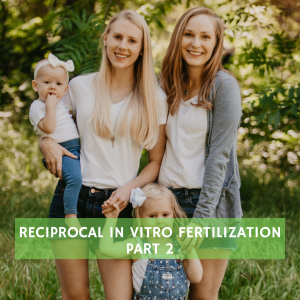
Friday May 01, 2020
Friday May 01, 2020
This episode is part of DNA Today’s ongoing infertility series. The series was launched hearing from Genetic Counselor Lauren Isley, she shared about artificial reproductive technologies and infertility genetic counseling.Sponsoring the series is LetsGetChecked, check out their home testing kits including fertility, sexual health and others. Receive your own kit for 20% off by using code “DNAToday”.Last episode we heard from Katie and Christina Bailey. They were sharing their journey to parenthood through reciprocal In Vitro Fertilization (IVF). We continue this conversation on this episode, so if you haven’t heard the first part of our discussion, you are going to want to listen to the previous episode where Christina and Katie Bailey talk about the beginning of their story with IVF.The Baileys have a large following of nearly 100,000 on Instagram, so you can check them out @BabyBaileyMamaDrama.On This Episode We Discuss:Conceiving a Second TimeGenetic Testing During PregnancyTalking to Kids About Their ConceptionDirect-To-Consumer Genetic Testing Finding Biological RelativesDecision to Make Family’s Story PublicCost of IVFFuture Kids and NamesAdvice for People Going Through Fertility TreatmentsIf you are interested in more details about the cost, the Baileys provided a breakdown here. The Bailey’s story was also summed up here. Join nearly 100,000 others in following them on Instagram and Youtube both at @BabyBaileyMamaDrama. You can also check out their blog, babybaileymamadrama.wordpress.com.DNA Today’s infertility series continues on the next episode! New episodes are released on the first Friday of the month with some bonus episode thrown in there. See what else we are up to on Twitter, Instagram, Facebook and iTunes. Questions/inquiries can be sent to info@DNApodcast.com.
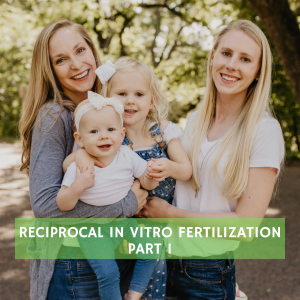
Friday Apr 17, 2020
Friday Apr 17, 2020
This episode continues the DNA Today’s series about infertility. If you haven’t yet heard the episode with Genetic Counselor Lauren Isley, I highly recommend you go back and listen to learn more about the artificial reproductive technologies and the genetic counseling side. It’s a great preview into this episode.Sponsoring the series is LetsGetChecked, check out their home testing kits including fertility, sexual health and others. Receive your own kit for 20% off by using code “DNAToday”.Currently 7.3 million Americans are facing infertility, and this series is bringing awareness to infertility along with teaching the science and genetic side. On this episode, we are going to hear personal perspectives. Joining me are Katie and Christina Bailey. They share their journey to parenthood through reciprocal In Vitro Fertilization (IVF). Christina and Katie have a large following of nearly 100,000 on Instagram, so you can check them out @BabyBaileyMamaDrama. This is part 1 of our conversation, for part 2, you will have to tune into the next episode to hear where the Bailey are today.On This Episode We Discuss:Deciding on Path to ParenthoodEducating Friends and FamilyChoosing a Sperm DonorHormones for IVFTechniques to Fertilize EggsConsidering Embryo AdoptionTo hear about the rest of the Bailey’s IVF journey you will have to tune into the next episode of DNA Today! In the meantime, join nearly 100,000 others in following them on Instagram and Youtube both at @BabyBaileyMamaDrama. You can also check out their blog, babybaileymamadrama.wordpress.com.Don’t forget to hear the rest our our conversation in the next episode of DNA Today! New episodes are released on the first Friday of the month with some bonus episode thrown in there. See what else we are up to on Twitter, Instagram, Facebook and iTunes. Questions/inquiries can be sent to info@DNApodcast.com.
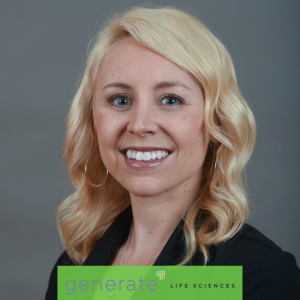
Friday Apr 03, 2020
Friday Apr 03, 2020
This episode is kicking off a series about infertility. The launch of this series is coinciding with infertility awareness week, April 19-25th, 2020. Over the next few episodes of DNA Today, we will be talking to experts in fertility these include genetic counselors, a couple who went through IVF, even filmmakers who produced a science fiction movie about fertility.Sponsoring the series is LetsGetChecked, check out their home testing kits including fertility, sexual health and others. Receive your own kit for 20% off by using code “DNAToday”.Currently 7.3 million Americans are facing infertility, and we wanted to bring awareness to this, but also education by having these conversations to learn about the science and genetic side, but also the patient side and hearing how infertility has impacted people’s lives and hearing their perspective. So many excited guests coming up!The first guest to launch this series is Lauren Isley, who is a genetic counselor that specializes in fertility and assisted reproductive technologies, known as ART for short. She is a Clinical Science Liaison at Generate Life Sciences (Formerly California Cryobank Life Sciences), a company that provides reproductive tissue and donor gamete services as well as newborn stem cell storage. Lauren is the Chair Elect of the Genetic Counseling Professional Group of the American Society of Reproductive Medicine (ASRM) and former chair of the ART/Infertility SIG of NSGC. Lauren has a Bachelor’s Degree in Biology from the University of Missouri. She went on to earn her Masters of Science in genetic counseling from Wayne State University.On This Episode We Discuss:Roles of a Genetic Counselor in FertilityFertility Technology OptionsCarrier ScreeningIn Vitro Fertilization (IVF)Types of Preimplantation Genetic Testing (PGT M, SR, A)Information and Limits of PGTsEgg and Sperm Freezing/DonatingDirect-to-Consumer (DTC) genetic testing impact on gamete donationNext episode we will be continuing this infertility series. Again infertility awareness week is April 19-25th, 2020. You can learn more by going to RESOLVE: The National Infertility Association. They are a non-profit organization dedicated to ensuring that all people challenged in their family building journey reach resolution through being empowered by knowledge, supported by community, united by advocacy, and inspired to act. Their website is resolve.org.You can also check out this blog post from the National Society of Genetic Counselors, “How Genetics Affects Infertility and Miscarriage”.Stay tuned for the next new episode of DNA Today’s infertility series on April 17th, 2020. New episodes are released on the first Friday of the month with some bonus episodes thrown in there. See what else I am up to on Twitter, Instagram, Facebook and iTunes. Questions/inquiries can be sent to info@DNApodcast.com.
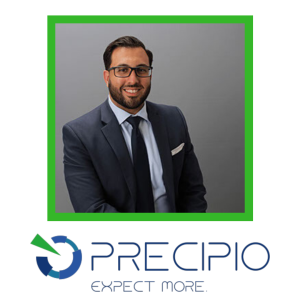
Friday Mar 20, 2020
Friday Mar 20, 2020
Zaki Sabet joins the show to discuss issues in the diagnostic process of hematologic cancers. Zaki has been with Precipio since co-founding the company in 2011 and currently serves as the Chief Operating Officer. He holds over 15 years of experience in laboratory management spanning all fields of reference laboratory operations primarily focusing on cancer diagnostics, which is the focus of our conversation on this episode. Prior to Precipio, Zaki has served as a consultant with the College of American Pathologists (CAP) for many years as well as several diagnostic companies in setting up their specialized cancer testing operations. Zaki holds a Bachelor of Science degree in Biomedical Engineering from the New Jersey Institute of Technology.On This Episode We Discuss:Background on Hematologic Cancers including SubtypesFrequency of Hematologic CancersPrevalence of MisdiagnosisDiagnostic Odyssey for PatientsMisdiagnosis Impact on Treatment and Disease CourseImpact of Physician’s Clinical Suspicions on Lab Tests OrderedCurrent Lab Tests to DiagnosePrecipio’s Solution to Reducing Misdiagnosis with IV-CellLearn more about Precipio on their website. You can also follow them on Twitter, LinkedIn and Facebook.Check out Picture Genetics, a clinical grade DNA testing service where physicians and genetic counselors are involved. These tests are designed for every stage of life, from family planning and newborn health, to personal wellness and disease risk. The test sequences entire genes that are medically actionable. It’s easy to order and understand with good looking reports, live chats, emails and even genetic counseling. To order your Picture Genetics go to PictureGenetics.com use code “DNATODAY” for 25% off and free-shipping!Stay tuned for the next episode of DNA Today on April 6th, 2020 which kicks off the fertility series! New episodes are released on the first Friday of the month with some bonus episodes thrown in there. In the meantime, you can listen to over 100 other episodes on Apple Podcasts, Spotify, or streaming on the website.See what else I am up to on Twitter, Instagram, Facebook and iTunes. Questions/inquiries can be sent to info@DNApodcast.com.
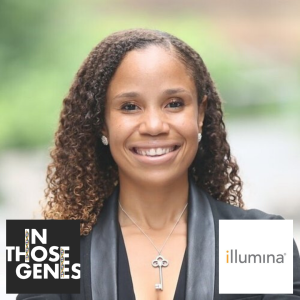
Friday Mar 06, 2020
Friday Mar 06, 2020
This episode continues the crossover series with other podcasts. Joining the show is Dr. Janina Jeff, who is a Human Geneticist and the first African American to graduate with a PhD in Human Genetics from Vanderbilt University. She is currently a Senior Scientist at Illumina, a biotech company that creates technology for companies such as Ancestry.com and 23&Me. Her research career was focused on population genetics, specifically studying admixed populations (descendants with African ancestry) and discovering population specific genetic risk factors of common disease. Her podcast, “In Those Genes”, is a hip-hop inspired show that uses genetics to uncover the lost identities of African Americans.On This Episode We Discuss:Inspiration to pursue genetics careerDiversity advancing researchUnique aspects of African genomesDisparity of health and medicine in Non-European populationsAncestry’s Horrendeous Advertisement Romantizing SlaveryDr. Jeff’s 46 Chromosomes and a Mule ArticleReal Cost of Direct-to-Consumer Genetic TestingBecoming the Primary Shareholders of our Genetic InformationDr. Jeff’s TEDtalk“In Those Genes” PodcastDr. Janina Jeff won Spotify’s “Sounds Up Bootcamp” which helped to launch her new podcast, “In Those Genes” available on Spotify, Apple and all major podcasting apps. Or you can go straight to their website, Twitter, or Instagram (@inthosegenes).Stay tuned for the next new episode of DNA Today. New episodes are released on the first Friday of the month with some bonus episode thrown in there. See what else we are up to on Twitter, Instagram, Facebook and iTunes. Questions/inquiries can be sent to info@DNApodcast.com.
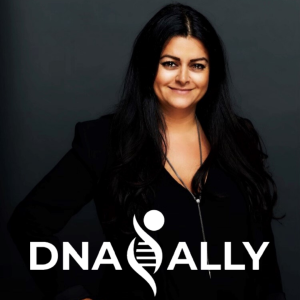
Friday Feb 21, 2020
Friday Feb 21, 2020
By the end of 2020, roughly 100 million people will have taken an at-home DNA test, according to MIT Technology Review. To put that into perspective, that’s more than the combined populations of Texas, California and Florida! In this podcast episode we explore considerations of direct-to-consumer genetic testing.Guests joining the episodes are from DNA ALLY, the matchmaker between direct-to-consumer genetic test consumers and genetic counselors. Nargol Faravashi, is the Co-Founder of DNA ALLY with a background in genetics and business. She had over 20 years of experience in launching clinical products for genomic companies along with an extensive background in business and marketing.Christin Coffeen has been a licensed certified genetic counselor for almost 20 years. She has a background in cancer and prenatal genetic counseling in the clinical setting as well as extensive industry background in medical affairs. She is also a member of DNA ALLY’s board of advisors.On This Episode We Discuss:Comprehensiveness of direct to consumer (DTCs) genetic testing testsTypes of information from genetic testing includingBRCA1/2 testingAlzheimer’s diseaseCarrier status for conditions like Cystic FibrosisPossibility of genetic testing becoming routine testingHealthcare provider’s ability to counsel patients on DTCsRead more on DNA ALLY’s Blog PostDNA ALLY’s solution to the overwhelming demand of counseling on DTCsOpportunities for genetic counselorsLearn more about DNA ALLY on their website and receive 15% off with promo code “DNAToday” on your direct-to-consumer genetic testing session with a genetic counselor.Stay tuned for the next new episode of DNA Today on March 6th with Dr. Janina Jeff talking about her brand new genetics podcast, In Those Genes! New episodes are released on the first and third Friday of the month. In the meantime, you can listen to over 100 other episodes on Apple Podcasts, Spotify, or streaming on the website.Don’t forget to check back in April for the launch of the first ever series on the show about fertility! Its launch is timed to coincide with infertility awareness week, April 23–29. I’ll be speaking with voices in fertility to explore topics like personal journeys, IVF, conceiving via a donor, media portrayal, genetic counseling, and fertility testing. Sponsoring the series is LetsGetChecked, check out their home testing kits including fertility, sexual health and others. Receive your own kit for 20% off by using code “DNAToday”.See what else I am up to on Twitter, Instagram, Facebook and iTunes. Questions/inquiries can be sent to info@DNApodcast.com.
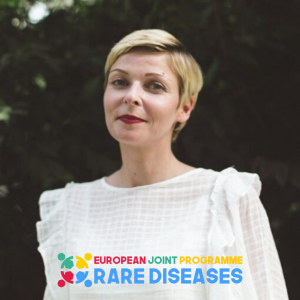
Friday Feb 07, 2020
Friday Feb 07, 2020
Dr. Daria Julkowska joins the show for Rare Disease Month as the Coordinator of the European Joint Program on Rare Diseases. This organization was newly established in January 2019. Daria is of Polish origin but she has lived and worked in France for the last 18 years. She has a PhD in molecular biology and is involved in rare diseases research and management for the last ten years.The European Joint Program on Rare Diseases represents 89 partners across the EU and beyond. Internally, the partners include research funders, research institutions and infrastructures, hospitals and of course patient organizations. The program is financed by the EU and the states participating in the project.On This Episode We Discuss:Motivation to Start the OrganizationGoals for the Rare Disease CommunityCountries RepresentedRare Disease Visual PlatformAdvancing Rare Disease ResearchOngoing Research ProjectsFunding for ResearchCombating Exorbitant Costs of Treatments (Ex: Spinraza)Rare Disease Day/Month InvolvementHappy Rare Disease Month! If you are in the US you can get involved by going to the National Organization for Rare Disorders’ website, rarediseases.org. You can find ways to get active on social media and in person events. Learn more about The European Joint Program on Rare Diseases by visiting their website.Want to hear more from the rare disease community? Check out all the 20 rare disease episodes of DNA Today here! Recent episodes include #102 Seth Rotberg on Huntington Disease, #98 Lydia Seiders on Aplastic Anemia, and #95 Kieger Family on Familial Adenomatous Polyposis.Stay tuned for the next new episode of DNA Today. New episodes are released on the first Friday of the month with some bonus episode thrown in there. See what else I am up to on Twitter, Instagram, Facebook and iTunes. Questions/inquiries can be sent to info@DNApodcast.com.
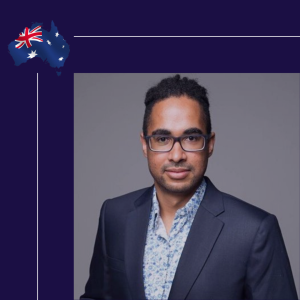
Friday Jan 03, 2020
Friday Jan 03, 2020
Genetic Counselor Matt Burgess join the first episode of 2020 to talk about Australian genetic counseling and being a clinical science liaison. He built one of Australia’s most successful genetic counseling private practices in Melbourne. Matt provided versatile genetic counseling services using a broad scope of knowledge including hereditary cancer, neurogenetics, prenatal genetics, adult, pediatric and cardiac genetics. He earned a graduate degree in genetic counseling from the University of Newcastle and a Masters of Applied Positive Psychology at The University of Melbourne. He is currently a Clinical Science Liaison at Baylor Genetics. Matt also hosts another genetics podcast, “Demystifying Genetics”, which makes this is episode part of my crossover series with other genetic podcasts.On This Episode We Discuss:Australian Genetic CounselingNumber of Genetic Counselors and ProgramsMain Areas of PracticeHealthcare System Compared to the United StatesPrivate v. Public Health FacilitiesInsurance and Hospital StructuresCertification ProcessPrivate PracticesRequirements to See A Genetic CounselorIndustry SpecialityRole of a Clinical Science LiaisonThe Advantage of a Clinical BackgroundHow to Support Sales EducationStay tuned for the next new episode of DNA Today! New episodes are released on the first Friday of the month with some bonus episode thrown in there. In the meantime, you can listen to 113 other episodes on Apple Podcasts, Spotify, or streaming on the website.See what else I am up to on Twitter, Instagram, Facebook and iTunes. Questions/inquiries can be sent to info@DNApodcast.com.








